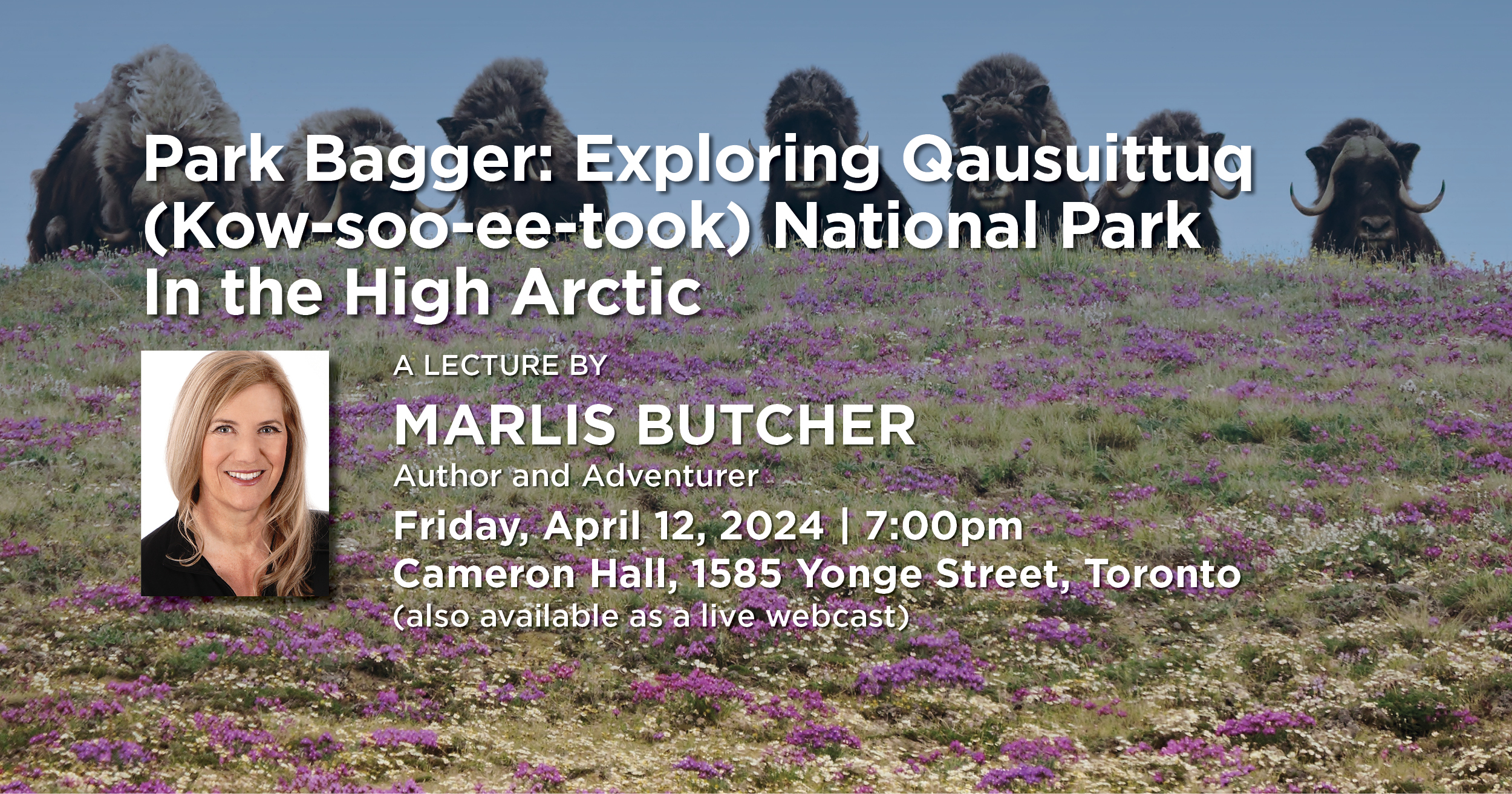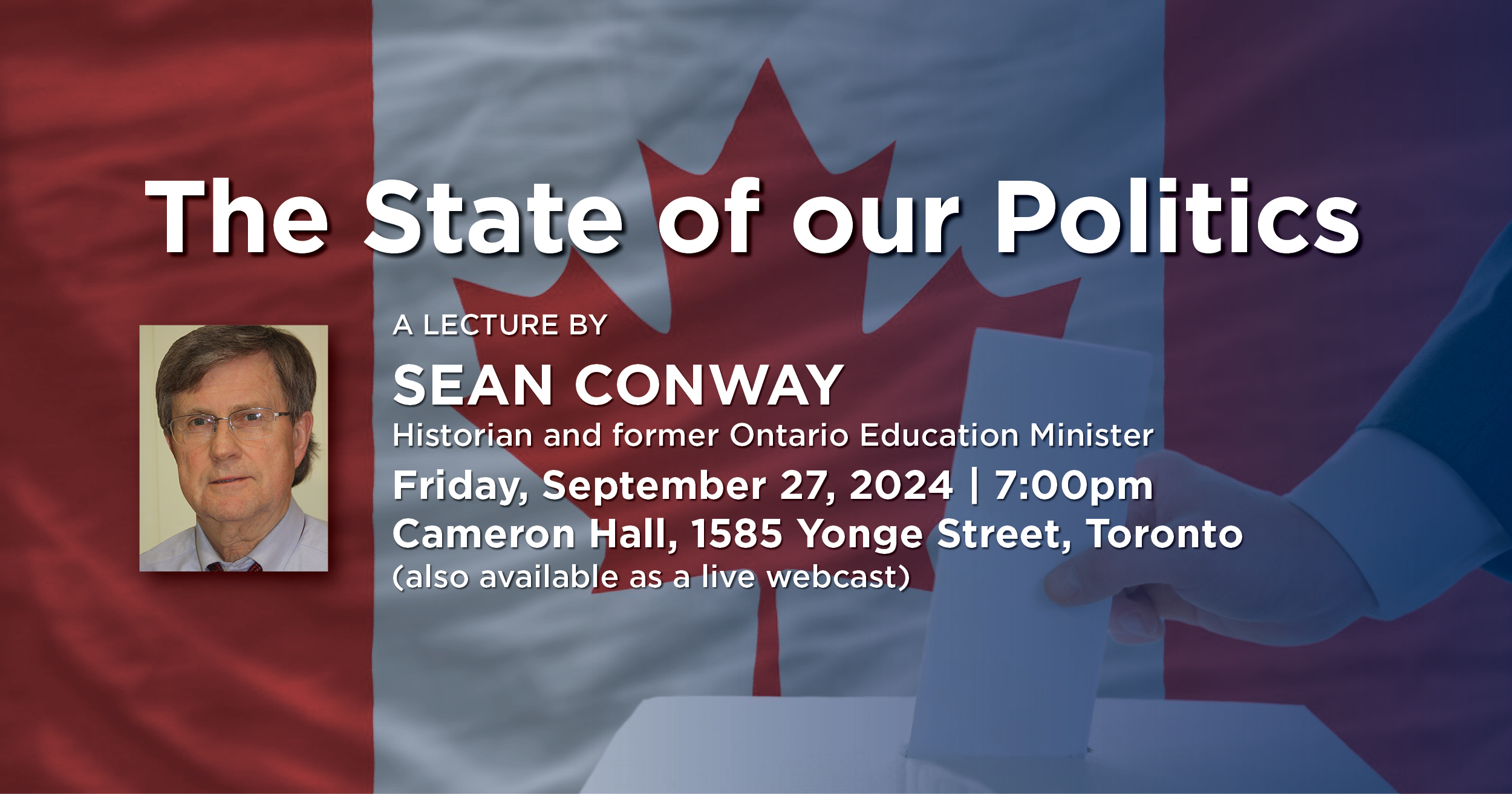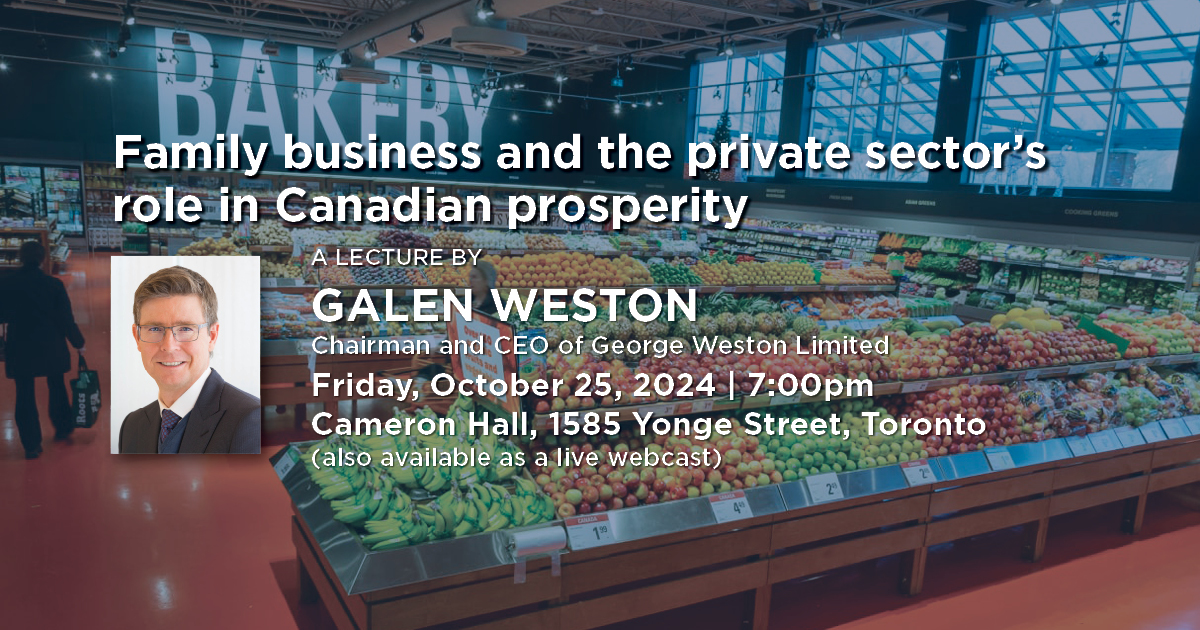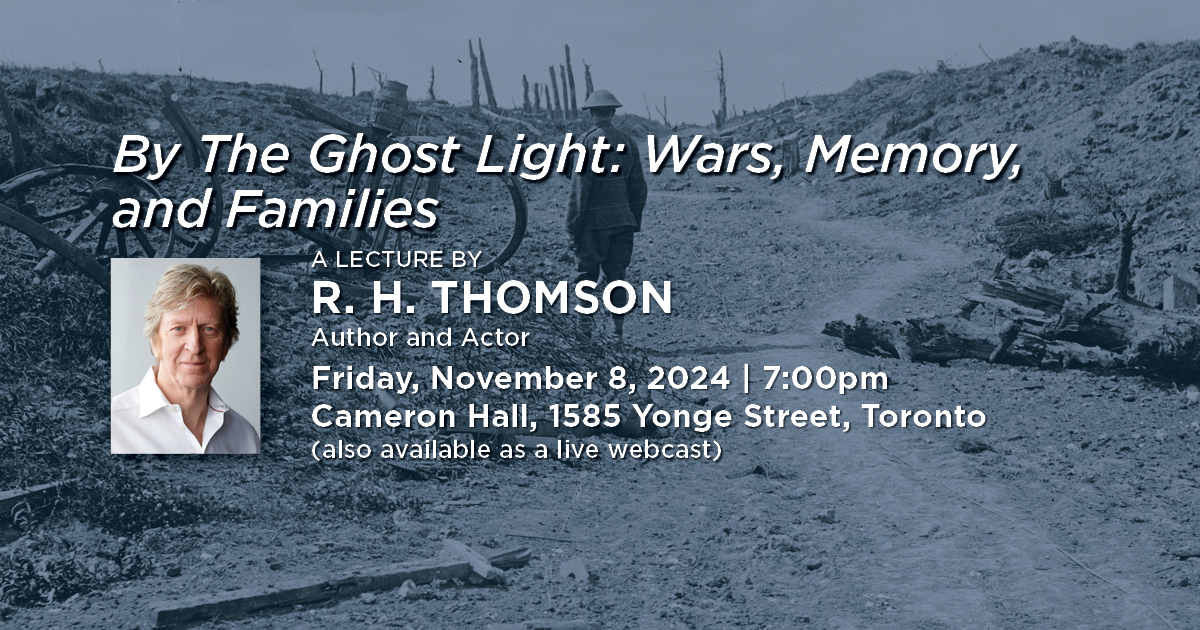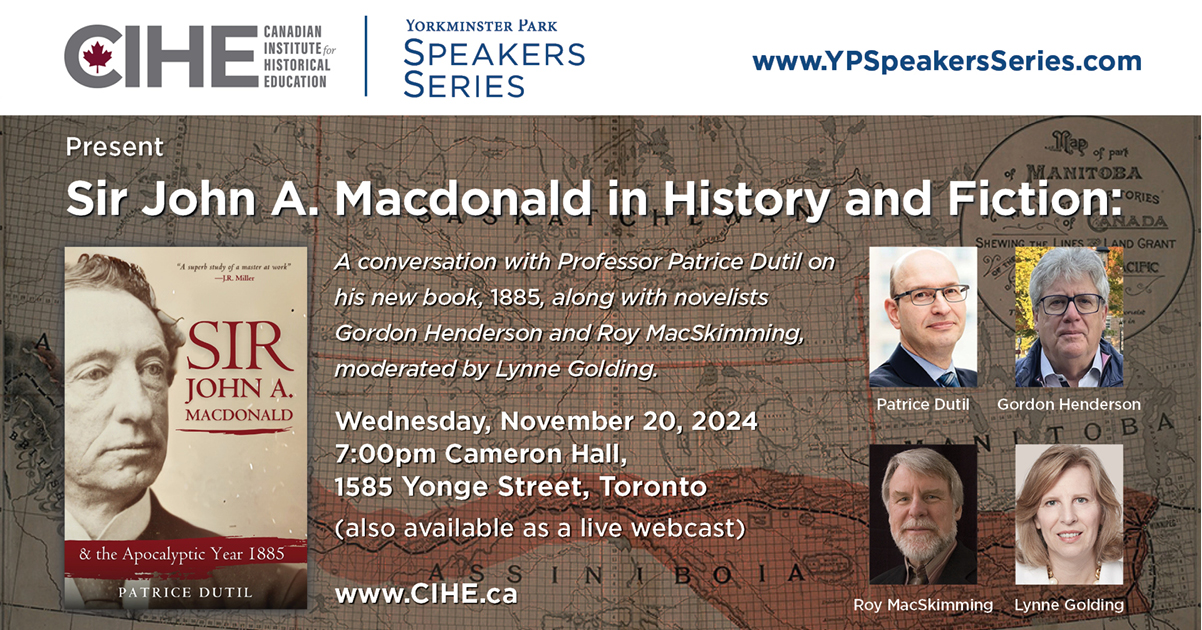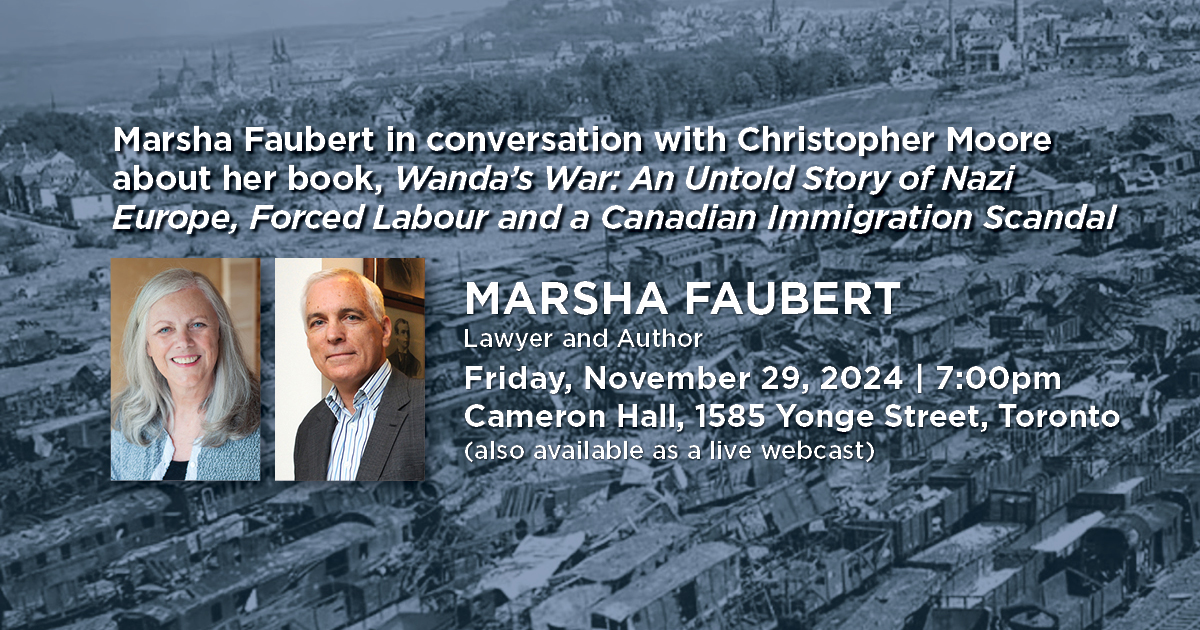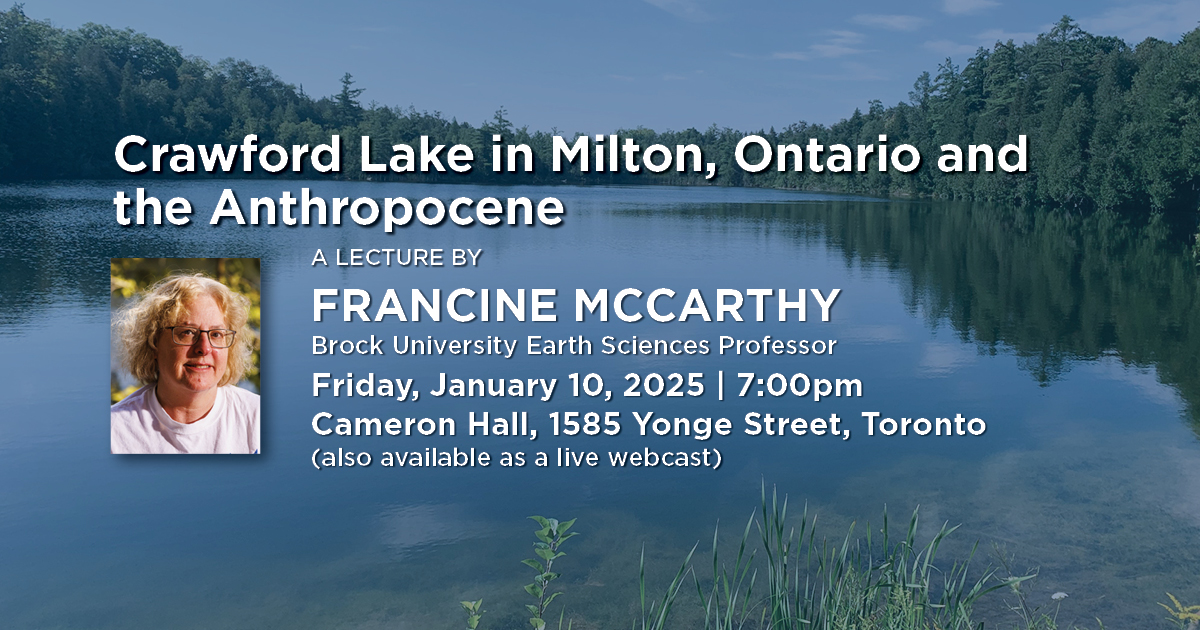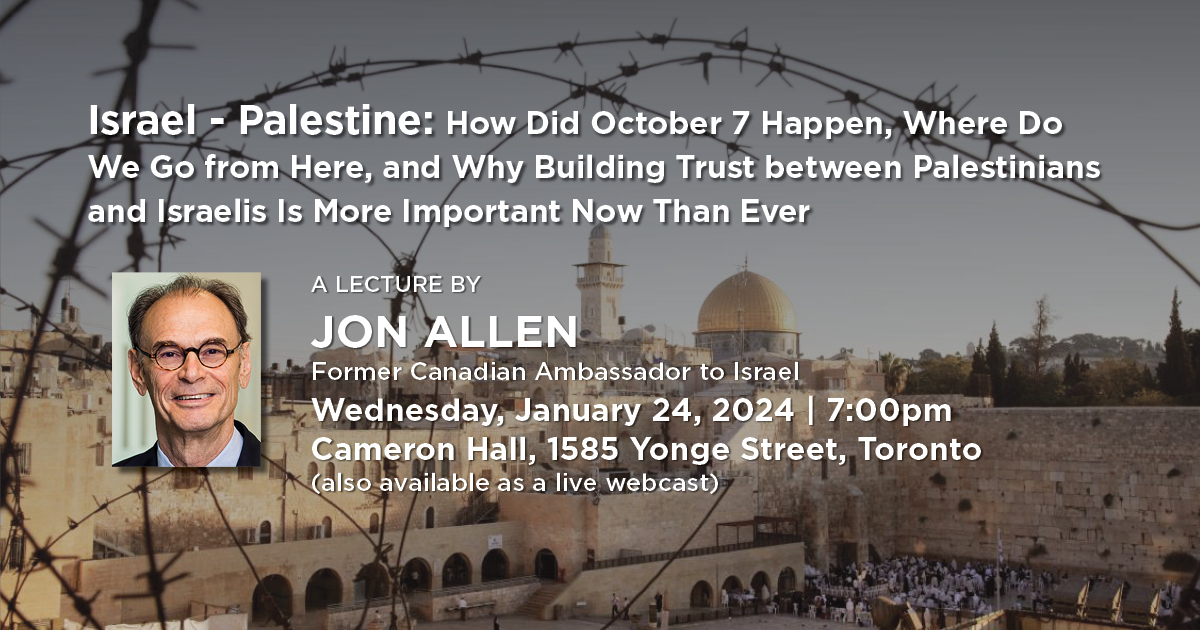
Israel – Palestine: How Did October 7 Happen, Where Do We Go from Here, and Why Building Trust between Palestinians and Israelis Is More Important Now Than Ever
Cameron Hall 1585 Yonge Street, TorontoThe brutal massacre of October 7 in southern Israel by Hamas terrorists cannot be justified under any circumstances. But the attack and Israel's response took place within a complex and longstanding context of conflict between Israelis and Palestinians that began in the early 20th Century. The November 2022 election in Israel, when the most right wing government in Israel's history was elected, resulted in policies, actions and personalities that helped set the scene for the tragedy that we are witnessing today. The only silver lining to emerge from the conflict is a revival by key players of the idea of a two-state solution as the best means for bringing long term safety and security to both parties.
Some of us feel distraught and helpless witnessing the horrors of the current situation. We are searching for ways to alleviate some of the pain and suffering in the region. Jon Allen chairs Rozana Canada, a non profit that builds trust and respect between Israelis and Palestinians through the health care sector. Rozana designs, implements and funds joint Palestinian-Israeli projects in the training, treatment and transport of Palestinians with the collaboration of Israeli health professionals. This work is more important now than ever.
BIOGRAPHY:
Jon Allen was born in Winnipeg and studied at Western University and the London School of Economics before joining the Department of External Affairs in 1981. In addition to postings in Mexico
City, New Delhi and Washington, Jon spent his early career working in the areas of human rights, humanitarian, and environmental law. From 2006 to 2010, he served as Canada’s Ambassador to Israel; from 2012 to 2016 as Ambassador to Spain and Andorra; and from December 2012 to July 2014, as interim Chargé d’affaires to the Holy See. Jon Allen is currently a Senior Fellow at the Munk School of Global Affairs and Public Policy and a Distinguished Fellow of the Canada International Council. He is the Chair of Project Rozana Canada, a not for profit whose objective is to build bridges between Palestinians and Israelis via the health sector.




